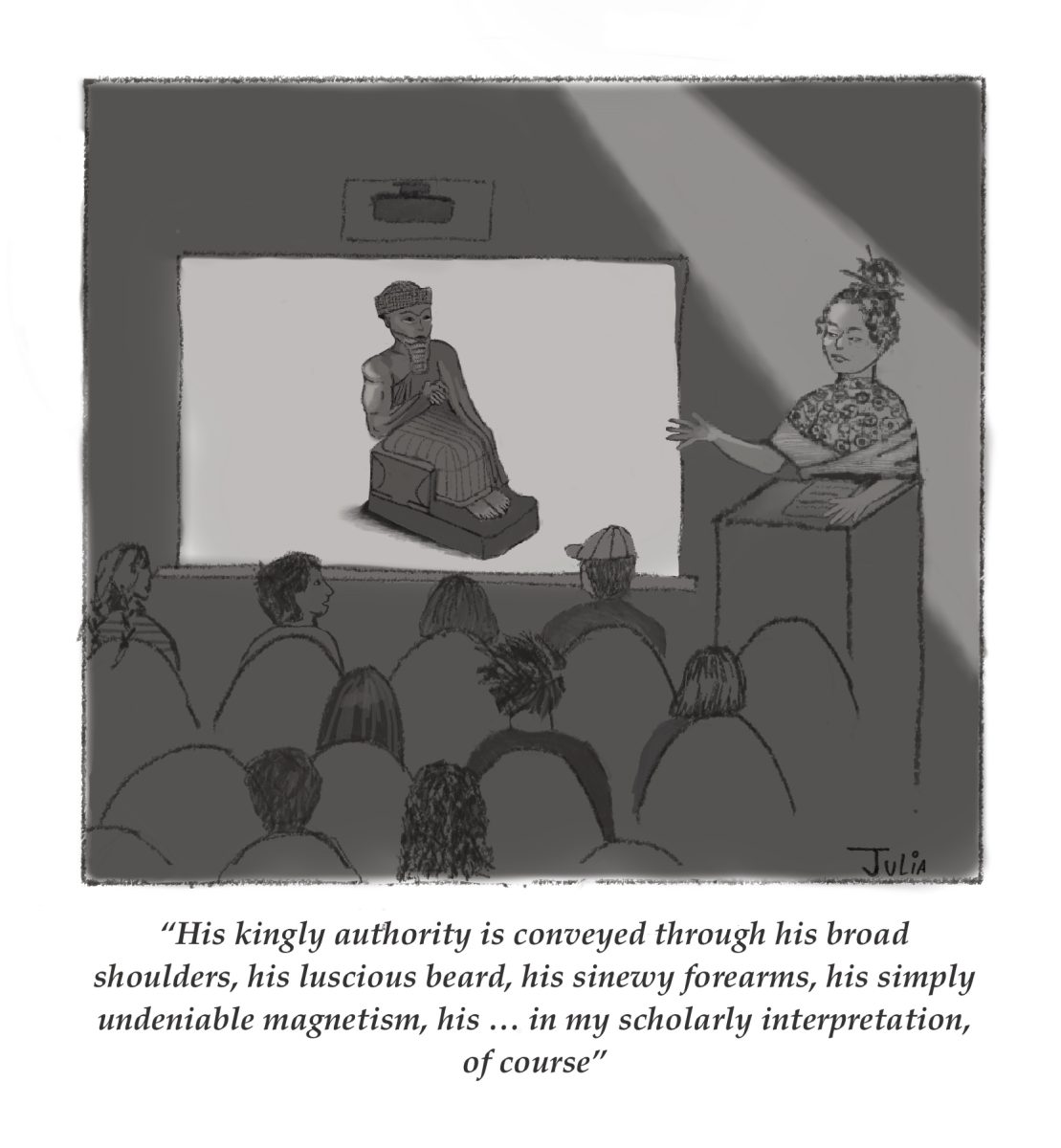Williams students who listen to – yet do not necessarily agree with – an Israeli perspective in the Israeli-Palestinian conflict are often shunned as conservative, colonialist, racist and oppressors. Having studied the conflict in depth while living side-by-side with Israelis and Palestinians for the past three months, I am convinced we must find nuance in this complicated 70-plus year conflict. This involves listening to both sides while taking action against the abhorrent oppression of the Palestinian people.
This semester, I am studying at the Arava Institute for Environmental Studies located in southern Israel. The community brings together students from around the world and is comprised of one-third Israeli students, one-third Palestinian and Jordanian students and one-third international students. The Institute’s mission is to build peace in the region through learning about environmental science, studies and justice. Each week, we have a mandatory dialogue session facilitated by three trained mediators representing the main languages spoken on campus (Arabic, Hebrew and English). While studying here, I’ve learned more than I could have ever imagined, and I think the Williams community could benefit from some of these lessons, too.
While studying at Arava, I’ve been exposed to trainings that teach us how to engage in compassionate, empathetic, challenging and productive dialogue. I’ve been working to change my mind about preconceived notions and to open up to recognize nuance. I’ve learned about alternative forms of activism. I’ve learned how to be a part of an intense and intimate multicultural environment that puts personal stories and experiences at the center of our community. I’ve also learned a lot about what it means to be a Jew with privilege, as someone who is Ashkenazi and economically secure.
Being off campus during this heated time has made me more aware of our College community’s limitations. At Williams, conversations often operate under the assumption that Jews have little right to feel discriminated against; they are barely minorities, despite the statistics and stereotypes pervading the media and despite the reality of violence. When the only group to be denied registered student organization status for political reasons is one affiliated with Israel, this may, at first glance, not appear to be anti-Semitic. At the same time, I am concerned that some of the rhetoric used against the club propagates deeply anti-Semitic tropes. For example, the mention of the “pro-Israel lobby” having disproportionate money and power alludes to the belief that Jews are secretly ruling and manipulating the politics of the United States. Other anti-Semitic tropes such as “having Jewish friends” and “attending a Shabbat dinner” can be an attempt at showing solidarity yet can easily rationalize words and actions that are actually harmful.
While my political opinions and personal relationship to Zionism may differ in important ways from those organizing Williams Initiative for Israel (WIFI), I believe they should have the right to exist as an organization and deserve to feel safe sharing their perspectives. It seems the students organizing WIFI are working for the same reasons as those who want to deny its existence: attempting to create a safe place for themselves where they can talk openly about why a State of Israel is important to them.
I’m not backing WIFI without critique – their use of Palestinian birth rate statistics to minimize the impact of the occupation and the loss of life is appalling. I myself am angry about the current state of Israeli politics and the violence that has taken and continues to take place. However, denying the reasons the nation came into existence can serve to erase Jewish rights and to propagate anti-Semitism. For many people, the State of Israel exists to validate the Jewish right to feel safe.
I’m afraid that because I am advocating for the right for a pro-Israel club to exist, I am seen as the enemy. Williams’ politics are framed as good versus evil. But who gets to choose who feels safe? Fellow students on campus may not realize this, but as a Jewish student, I am not sure I would feel safe on campus given the current rhetoric and its accompanying undertones. But paradoxically, I have come to feel closer to the Jewish community at Williams and have felt strong unexpected support from many Jewish peers. While there may be a few Jewish students advocating for the denial of WIFI, these individuals do not speak for me. Furthermore, I am concerned that Jewish voices making these statements can provide cover or legitimacy for others to make comments that can veer into the anti-Semitic.
From my perspective of studying abroad and outside of the Williams campus, I think the best preparation we can give ourselves for when the time comes to leave the “Purple Bubble” is to talk with “the other side” and engage in dialogue. Given the clear importance of this subject matter to the campus community, don’t we owe it to ourselves to recognize and discuss the nuances of the conflict? My goal is to work towards positive, meaningful change, justice at Williams and in the world as a whole. I deeply believe that listening to each other and collaboratively building community is the only way to get there. This is what Students for Israeli-Palestinian Dialogue (SIPD) aspires to do, and I hope the group can contribute positive change at Williams.
Hannah Goldstein ’20 is an environmental studies major from Brookline, Mass




